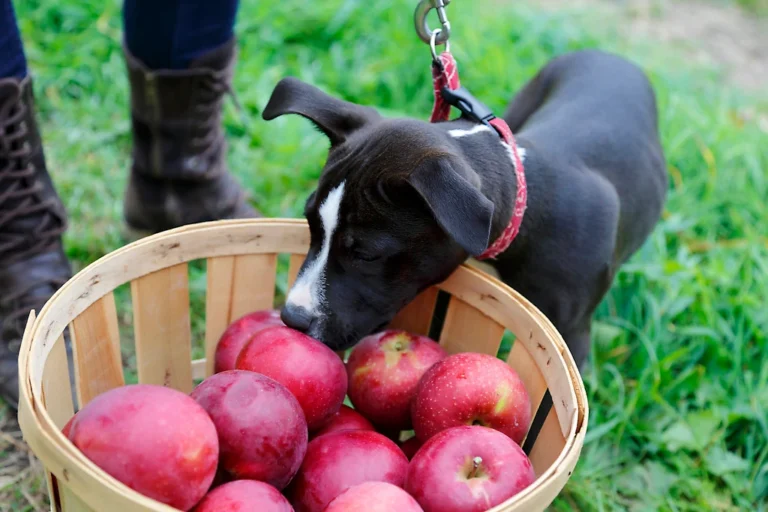Can Dogs Eat Coconut?

Can Dogs Eat Coconut?Coconut has gained popularity among pet owners due to its potential health benefits for dogs. While it offers various nutrients, it is important to ensure proper feeding practices. Coconut is rich in fiber, antioxidants, and healthy fats, all of which can support your dog’s overall health.
Nutritional Composition of Coconut
Dogs eat coconut is a highly nutritious fruit, containing a variety of beneficial elements that can contribute to your dog’s health. Some of the key nutrients include:
- Healthy Fats: Coconut contains medium-chain triglycerides (MCTs), a type of fat that is easy for dogs to digest and can provide quick energy.
- Fiber: High fiber content aids in digestion and can help dogs with constipation or gastrointestinal issues.
- Antioxidants: These help combat free radicals in the body and support overall immune function.
- Vitamins and Minerals: Coconut is also a good source of vitamins such as Vitamin C, E, and various B vitamins, as well as minerals like potassium, magnesium, and phosphorus.
While these nutrients make coconut an appealing option for dogs, moderation is key. Too much coconut can lead to digestive issues or imbalanced nutrition.
Potential Health Benefits of Coconut for Dogs
Improved Digestive Health
Coconut’s high fiber content plays a crucial role in your dog’s digestive system. Fiber aids in moving food through the intestines, preventing constipation, and promoting regular bowel movements. It also helps in the treatment of diarrhea by absorbing excess water in the stool. Therefore, if your dog suffers from digestive issues, coconut might help regulate their digestion.
Boosts Immune System
Coconut contains antioxidants like Vitamin E and C, which support the immune system. These antioxidants help neutralize harmful free radicals and protect your dog’s body from infections and diseases. Regular consumption of coconut may improve your dog’s overall immunity and help them stay healthy.
Promotes Healthy Skin and Coat
The MCTs and healthy fats in coconut oil and coconut meat can help improve the health of your dog’s skin and coat. Coconut is often used in dog shampoos and topical treatments to soothe dry, itchy skin. Regular ingestion of coconut can help keep your dog’s skin moisturized, reduce shedding, and contribute to a shiny coat.
Supports Brain Health
MCTs, the healthy fats in coconut, have been linked to improved cognitive function. These fats are easily absorbed and converted into energy, which can improve your dog’s brain function. This can be especially helpful for senior dogs showing signs of cognitive decline, as the energy from MCTs may help slow down the progression of age-related mental deterioration.

Can Dogs Eat Different Forms of Coconut?
Coconut is available in various forms, including fresh coconut meat, dried coconut, coconut oil, and coconut milk. It’s important to understand the different uses and safety considerations for each form when giving it to your dog.
Fresh Coconut Meat
Fresh coconut meat is the soft, white, edible part inside the coconut. It is the safest option for dogs and is rich in nutrients. You can give your dog small amounts of fresh coconut meat as a snack or mix it into their food. Be sure to remove the outer shell, as it can be a choking hazard.
Dried Coconut (Desiccated Coconut)
Dried coconut is often used in baking and cooking, but it is much more concentrated than fresh coconut. This means that feeding your dog too much dried coconut can lead to an upset stomach. Also, dried coconut typically contains added sugar or preservatives, which should be avoided. Opt for unsweetened, natural dried coconut if you want to share this with your dog, but keep portion sizes small.
Coconut Oil
Coconut oil is a versatile product for both humans and dogs. It contains medium-chain fatty acids (MCFAs), which can support your dog’s skin, coat, and overall health. Coconut oil is often used to treat dry skin, improve coat shine, and provide a natural energy boost. It can be used topically or added to your dog’s food in moderation. However, be careful with the quantity, as too much coconut oil can cause diarrhea or other digestive issues.
Coconut Milk
Coconut milk is made by blending coconut meat with water. While it contains healthy fats and nutrients, coconut milk is high in fat and calories. Too much coconut milk can lead to weight gain or digestive upset. It is best to avoid giving your dog coconut milk as a regular treat, especially if they are prone to stomach issues.
Risks and Considerations When Feeding Coconut to Dogs
While coconut offers many health benefits, there are potential risks associated with feeding it to your dog. Understanding these risks will help ensure that your dog enjoys coconut safely and in moderation.
High-Calorie Content
Coconut, especially coconut meat and coconut oil, is high in calories. Feeding your dog too much coconut could contribute to weight gain, which may lead to obesity and related health problems. Be mindful of portion sizes, and make sure that coconut treats do not replace your dog’s regular, balanced diet.
Choking Hazard
The outer shell of the coconut can pose a choking hazard to dogs. Always remove the shell before offering coconut to your pet. Additionally, avoid giving them large pieces of coconut meat that they could potentially choke on.
Digestive Upset
While coconut can improve digestion in some dogs, too much of it can lead to gastrointestinal issues, such as diarrhea, bloating, or an upset stomach. If you are introducing coconut into your dog’s diet for the first time, start with small amounts to monitor their reaction. Gradually increase the quantity if your dog tolerates it well.
Allergic Reactions
Some dogs may have allergies to coconut or certain coconut products. Symptoms of an allergic reaction can include itching, swelling, vomiting, or diarrhea. If you notice any of these symptoms after feeding your dog coconut, stop giving it to them and consult a veterinarian.
How Much Coconut Can Dogs Eat?
The key to feeding your Dogs eat coconut is moderation. Coconut can be a great treat or supplement to your dog’s diet, but it should not replace their main food or be given in excess.
- For Small Dogs: Limit coconut to small, bite-sized pieces, no more than 1-2 teaspoons per day.
- For Medium-Sized Dogs: About 1-2 tablespoons of coconut meat or oil per day is appropriate.
- For Large Dogs: Up to 3 tablespoons of coconut meat or oil can be given, depending on the dog’s size and activity level.
These amounts are general guidelines and can vary depending on your dog’s individual needs, activity level, and health condition. Always consult with your veterinarian before adding any new food to your dog’s diet.
Tips for Feeding Coconut to Dogs
To safely incorporate coconut into your dog’s diet, consider the following tips:
Start Slowly
If it’s your dogs eat coconut, introduce it gradually. Start with small amounts to see how your dog’s digestive system reacts. If they show signs of discomfort, such as diarrhea or vomiting, discontinue the coconut and consult a vet.
Avoid Sweetened Coconut Products
When purchasing dried coconut or coconut products, always choose unsweetened, natural options. Sweetened coconut products may contain added sugars that are harmful to dogs. Excess sugar can lead to obesity, dental problems, and even diabetes in the long run.
do you know
Dogs, like humans, require a balanced diet to maintain good health. While most of their nutrition comes from high-quality dog food, some pet owners choose to add healthy treats to their dog’s diet, such as fruits, vegetables, and other foods.
Use Coconut Oil Moderately
While dogs eat coconut oil is beneficial for your dog’s coat and skin, it should be used sparingly. Too much coconut oil can cause digestive upset, and the high-fat content may lead to weight gain. Consider mixing a small amount into your dog’s food or applying it topically for skin issues.
Monitor for Allergies
As with any new food, keep an eye on your dog after they consume coconut. Watch for signs of allergies, such as itching, swelling, or gastrointestinal distress. If any of these symptoms occur, contact your veterinarian.
Conclusion: Should You Feed Coconut to Your Dog?
Coconut can be a healthy and tasty treat for dogs when fed in moderation. Its rich nutrient profile, including healthy fats, fiber, and antioxidants, can provide various health benefits, from improved digestion to better skin and coat. However, it is essential to be mindful of portion sizes and to avoid certain coconut products, such as those with added sugar or preservatives.
Always start with small amounts, observe how your dog reacts, and adjust accordingly. Consult your veterinarian before introducing coconut or any new food into your dog’s diet, particularly if your dog has preexisting health conditions. By following these guidelines, you can safely incorporate coconut into your dog’s diet and help support their overall health.
Can a dog eat coconut rice?
Yes, dogs eat coconut rice in moderation, but it should be prepared carefully. Dogs eat coconut rice occasionally as a treat or meal supplement. However, it’s important to ensure that the rice is plain, without added spices, salt, or harmful ingredients like garlic or onions, which can be toxic to dogs. dogs eat coconut rice, made with coconut milk or coconut oil, can be a healthy addition to a dog’s diet, providing a natural source of healthy fats, fiber, and some vitamins. The coconut flavor is usually safe for dogs, but it’s important to serve it in small amounts to prevent digestive upset. Always check the ingredients and make sure it’s appropriate for your dog’s dietary needs.
What rice can dogs not eat?
Dogs should not eat uncooked rice or rice that is flavored with harmful ingredients. Dogs eat coconut rice and plain white or brown rice without added seasonings, but rice dishes that contain onions, garlic, or heavy spices should be avoided. These ingredients can cause serious digestive problems, toxicity, or other health issues in dogs. It’s also important to avoid any rice dishes with excess fat or salt, as these can contribute to obesity or high blood pressure. Stick to basic, cooked rice and avoid commercial rice dishes that contain ingredients harmful to dogs.
What kind of rice is best for dogs?
The best kind of rice for dogs is plain, cooked white rice or brown rice. Dogs eat coconut rice occasionally, but for regular feeding, plain rice is easy to digest and often used to soothe upset stomachs. White rice is particularly beneficial for dogs with gastrointestinal issues because it’s gentle on their stomachs and helps firm up loose stool. Brown rice, while a bit harder to digest, offers additional fiber, which can be helpful for dogs with regular constipation or digestive problems. Always serve rice in moderation, and avoid adding any salt, butter, or seasoning to the rice when preparing it for your dog.
Is coconut flavor ok for dogs?
Yes, dogs eat coconut in various forms, and coconut flavor is generally safe for dogs. Coconut contains beneficial fats, fiber, and antioxidants that can contribute to your dog’s health. However, it’s essential to feed coconut in moderation. Dogs can consume coconut meat, coconut oil, or coconut-flavored treats, but only in small quantities. Coconut oil, for instance, can be used in their food or for topical use to improve skin and coat health. Always ensure that the coconut flavor does not contain artificial additives or sugar, as these could cause digestive issues or allergies. When introducing coconut to your dog, start with small amounts to see how they react.
Is it OK to feed dogs rice every day?
Feeding your dog rice every day is generally not recommended unless it’s done as part of a balanced diet. Dogs eat coconut rice or plain rice occasionally, but daily rice consumption may not provide all the necessary nutrients your dog needs. While rice is an excellent source of carbohydrates, it lacks the essential proteins, vitamins, and minerals that a dog’s diet should include. Additionally, feeding rice every day can lead to nutritional imbalances, especially if it’s the only food your dog is consuming. For a well-rounded diet, it’s best to feed your dog a variety of foods, including meats, vegetables, and high-quality dog food, while using rice as an occasional supplement.
Is chapati good for dogs?
Chapati, or Indian flatbread, is not the ideal food for dogs, though it is not toxic in small amounts. Dogs eat coconut or plain rice more safely than chapati, which often contains ingredients like salt, oil, and sometimes spices, which can be harmful to dogs. While a small piece of plain chapati may not cause any harm to your dog, it is not a nutritious option for their diet. Dogs do not require wheat-based foods, and chapati can cause digestive issues or allergies in some dogs, especially if they have sensitivities to wheat or gluten. It’s better to stick to foods specifically designed for dogs to ensure they get the proper nutrition.
What kind of rice to feed a sick dog?
For a sick dog, plain white rice is often the best option. Dogs eat coconut rice only in moderation, but when a dog is ill, rice can be an easily digestible food that helps settle their stomach and firm up loose stool. Cook the rice without any additives, oils, or seasoning. If your dog has diarrhea or an upset stomach, you can pair the rice with boiled chicken breast (without skin or bones) to provide additional protein. White rice is preferred over brown rice because it’s easier on the stomach and gentler for dogs recovering from illness. Always consult your veterinarian to determine the best diet for your sick dog.






